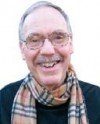Aa
Aa
Aa
-
A
+
Two Kinds of Learning—Which Is Yours?
Dr. Francis Collins is one of America’s leading scientists. With both an M.D. and a Ph.D, he led the team of scientists that mapped the entire human genome. It is an extraordinary accomplishment in the history of science.
In a recent interview, Harvard's Dr. Henry Louis Gates asked Dr. Collins if there was any special spark or any moment in particular that inspired him to pursue a life of science. Dr. Collins replied that in fact there was.
He said that when he was in high school, on the first day of his first science course, the teacher handed each student a box. The boxes were sealed on the outside and hollow on the inside. But each box contained something. And as young Collins turned the box on........
© Psychology Today





















 Toi Staff
Toi Staff Belen Fernandez
Belen Fernandez Rami G Khouri
Rami G Khouri David Hutt
David Hutt Gideon Levy
Gideon Levy Andrew Mitrovica
Andrew Mitrovica Neve Gordon
Neve Gordon Ron Kronish
Ron Kronish Patrick Gathara
Patrick Gathara Moncef Khane
Moncef Khane Tuvia Book
Tuvia Book Dr Ramzy Baroud
Dr Ramzy Baroud Stefano Lusa
Stefano Lusa
